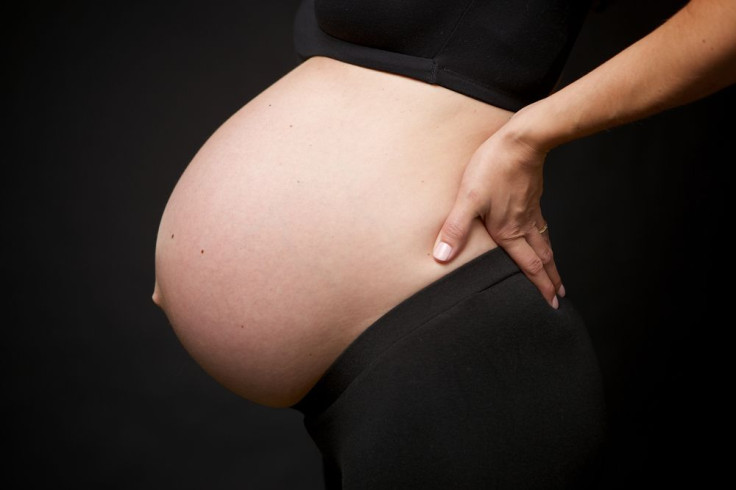Cryptic Pregnancy Strikes Again: Woman Gives Birth An Hour After Hearing The News

It would probably be safe to say that Wednesday, Jan. 7, 2015 was the most shocking day of Katherine Kropas’s life. Just an hour after finding out she was pregnant, the 23-year-old gave birth to a healthy 10-pound baby girl. Kropas experienced what doctors refer to as a cryptic pregnancy, and although rare, the experience is far from unheard of. Thankfully, Kropas and the baby both ended up fine, but in surprise pregnancies this is not always the case.
The day before Kropas have birth, she was experiencing extreme pain in both her stomach and her back.
“Tuesday morning I woke up, and I had crazy lower back pain,” Kropas told CBS Boston. “I thought I had put on some Christmas season weight, but I never thought I was pregnant. Never.”
Although Kropas was on birth control and still getting her period, at the hospital doctors informed Kropas that the cause for her weight gain was not holiday munchies but rather a human baby, The Washington Post reported.
“I almost fell out of the chair,” Kropas’s father said, noting that Katherine’s mother started to scream when she heard the news, according to ABC Boston.
The child was delivered by Caesarean section at 11:06 p.m., exactly one hour after Kropas and her boyfriend Dan Keefe discovered that that they were parents-to-be.
In the United States. just a little over half of all pregnancies are unplanned, and of every 450 women who fall pregnant, one will not realize her condition until week 20 (more than halfway through the pregnancy.) These super surprises, or cryptic pregnancies, are more common than you might believe and have been recently featured by the TLC reality show I Didn’t Know I Was Pregnant.
“We do about 3,500 births a year, and we probably see this a few times a year,” Dr. Kim Dever, chair of the Obstetrics and Gynecology at South Shore Hospital, told The Washington Post.
Studies have shown that unplanned pregnancies are at a greater of ending in preterm births and low birthrates, but unplanned and unknown pregnancies are at an even greater risk. Due to the relatively high rate of unplanned pregnancies in the U.S., the the Centers for Disease Control and Prevention advises that all women of the reproductive age adopt healthy habits to ensure that if they do fall pregnant, the health of their child is not compromised. These include: maintaining a healthy diet and weight, quitting tobacco, abstaining from alcohol and drugs, and taking folic acid.
One of the most dangerous things a pregnant woman can do is consume alcohol. There is no known “safe” amount of alcohol that a woman can drink during her pregnancy, and it is advised that she abstain from it completely until after she gives birth. Alcohol is believed to be most harmful to a baby during the first three months of development, according to MedlinePlus, putting women who don’t realize they are with child until later in the pregnancy at an ever greater risk.
Although not every woman who drinks during her pregnancy will give birth to a baby with the fetal alcohol spectrum disorders, many do. This will result in a range of lifelong physical, behavioral, and intellectual disabilities, according to the CDC.



























